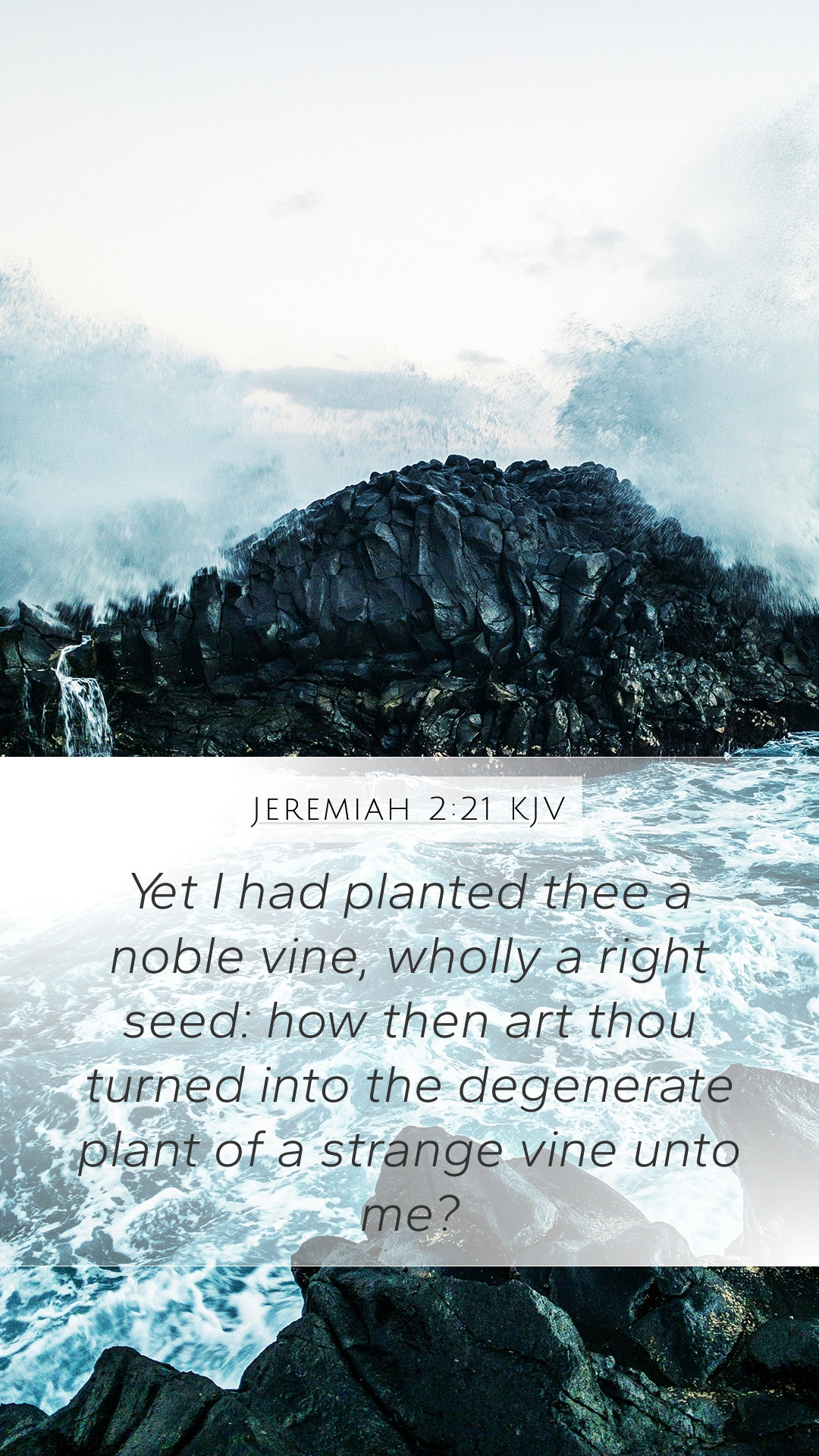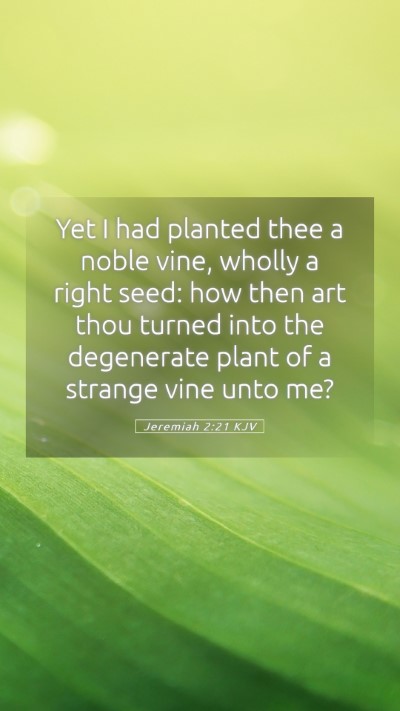Understanding Jeremiah 2:21
In Jeremiah 2:21, the Lord expresses profound disappointment with His people, whom He describes as a "vine" that He has planted as a perfect and noble seed. This verse encapsulates the themes of divine expectation, disobedience, and the subsequent consequences of turning away from God.
Verse Structure and Text
The specific text of Jeremiah 2:21 states: "Yet I had planted thee a noble vine, wholly a right seed: how then art thou turned into the degenerate plant of a strange vine unto me?" This poignant question underscores the Lord’s sorrow at Israel's spiritual decline.
Historical Context
The Book of Jeremiah was written during a tumultuous period in Israel's history, where the nation frequently turned away from God, worshipping idols and engaging in practices that violated the covenant. Understanding the historical context of this passage allows for a deeper comprehension of God’s lamentation over His people.
Commentary Insights
-
Matthew Henry:
Matthew Henry emphasizes that God had planted Israel as a choice vine, designed to bring forth good fruit. The "noble vine" reflects the high calling bestowed upon Israel, meant to be a reflection of God's glory. However, their actions led to degeneration, indicating a complete reversal from the divine intention.
-
Albert Barnes:
Albert Barnes focuses on the concept of “right seed,” which denotes purity and intention. He explains that the transition to a "degenerate plant" signifies a corruption of values, where the Israelites adopted foreign practices, leading to spiritual decay. This transformation reflects neglect of their covenant with God.
-
Adam Clarke:
Adam Clarke highlights the contrast between God's perfect planting and the people's degeneration. He argues that this verse serves not only as a lament but a warning. The term "strange vine" points to the adoption of foreign and corrupt influences, which are abhorrent to God. Clarke asserts this reflects the broader consequences of idolatry and disobedience.
Theological Implications
Jeremiah 2:21 speaks volumes about the nature of God’s relationship with His people. The metaphor of the vine illustrates the intimate care and attention God provides. The shift to a degenerate plant signifies a breakdown in this relationship:
- Divine Intent: God’s desire is for His people to flourish spiritually.
- Human Failure: The verse indicates human turning away from God leads to corruption.
- Call to Repentance: Implicit within the lament is a call for Israel to return to their roots and original calling.
Application for Today
For modern believers, Jeremiah 2:21 serves as a compelling reminder of the dangers of spiritual complacency. Much like the Israelites, contemporary followers of Christ may also be tempted to stray from their faith. This verse encourages:
- **Self-Reflection:** Taking time to assess one's personal faith and spiritual health.
- **Corporate Accountability:** Within Bible study groups, discussing the importance of remaining faithful to God’s word.
- **Commitment to Spiritual Growth:** Leveraging Bible study tools and resources to foster a deeper understanding of Scripture.
- **Prayer for Guidance:** Seeking God's help to remain a fruitful vine, committed to His teachings.
Conclusion
In conclusion, Jeremiah 2:21 encapsulates a critical message about the relationship between God and His people. This verse encourages believers to ponder how they can maintain their identity as God's chosen, avoiding the pitfalls of spiritual neglect and degeneration.
Cross References
- Isaiah 5:1-2: The parable of the vineyard emphasizes God’s care for Israel.
- John 15:1-2: Jesus as the true vine presents the New Testament correlation between believers and fruitful living.
- Hosea 10:1: A similar theme of degeneration in Israel's relationship with God.


